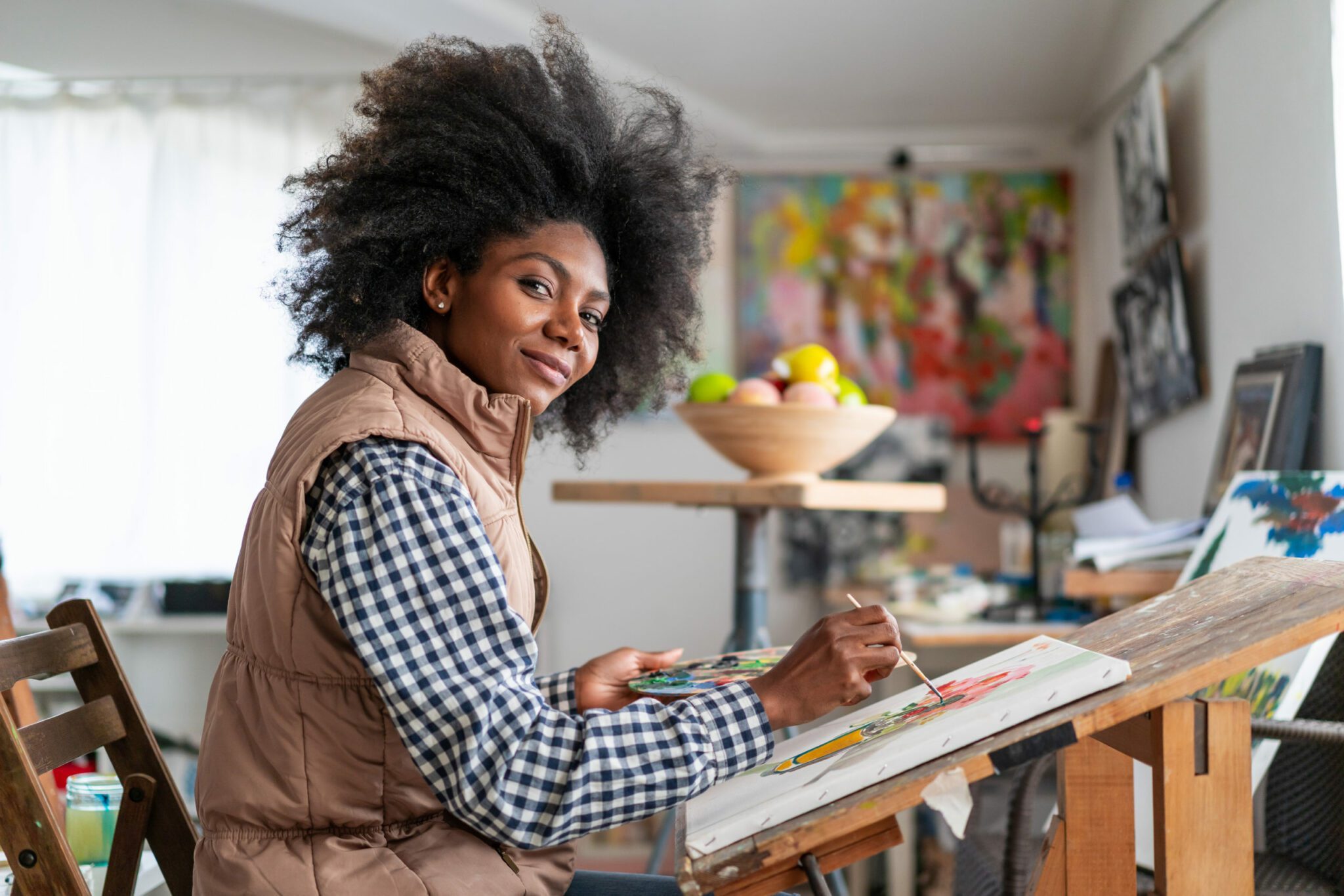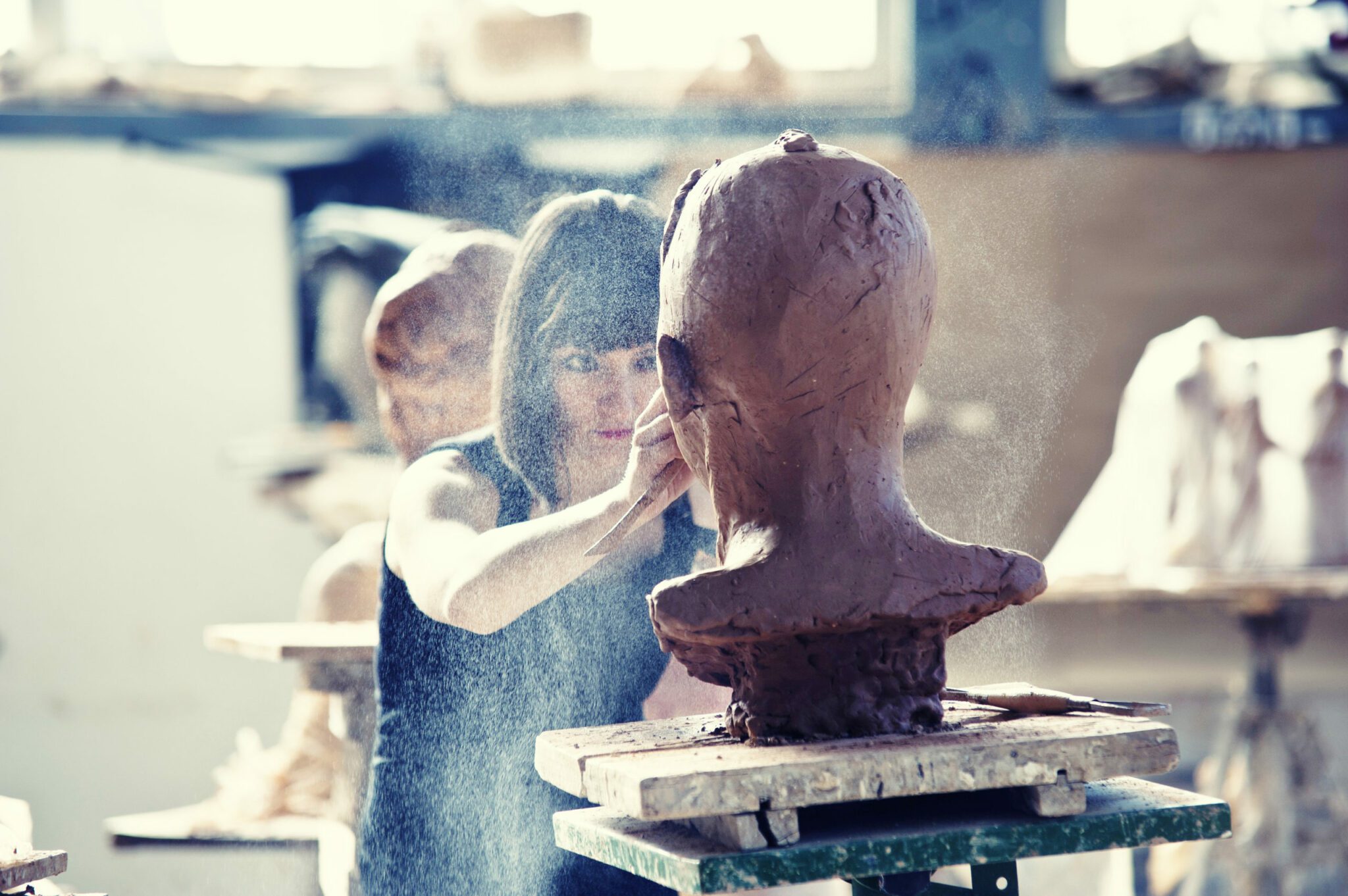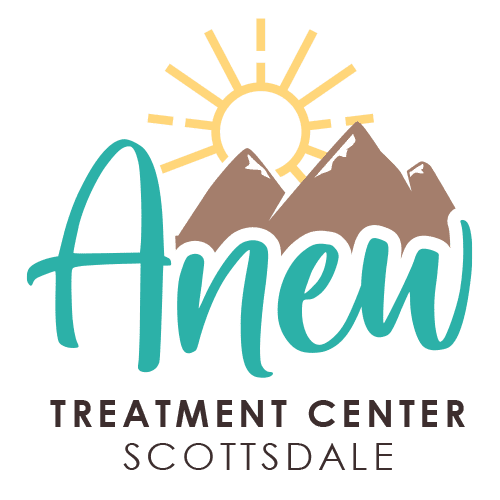Mental Health Benefits of Art Therapy
Art therapy is emerging as a more popular way of helping those who struggle with mental health issues.

What is Art Therapy?
People with mental illness commonly express themselves in drawing, painting, and other creative activities. The use of art as a healing strategy has been a worldwide and age-long practice.
However, art therapy is only becoming a full component of the therapeutic field with value for those suffering from mental illness. Before delving into the health benefits of art therapy, let's provide a clear definition of the term.

Art Therapy as a Mode of Expression
Art therapy is a unique discipline that comprises creative methods of expression via visual art media. It helps to improve the lives of individuals and families through creative processes, applied psychological theory, and human experience within a psychotherapeutic setting.
Art therapy is overseen and conducted by a professional art therapist who can work with individuals or families in various settings such as hospitals, schools, crisis centers, senior communities, and more. In addition, art therapy is used to help individuals with medical and mental health challenges and those desiring additional emotional and spiritual advancement as well.1
Techniques Used in Art Therapy
The main objective of art therapy is to use creative applications to assist people in exploring self-expression and, as a result, discover new avenues for personal insight, as well as developing coping skills. The following are just some of the few techniques used in art therapy:2
What Art Therapy Can Help With
Art therapy can help treat an array of mental illnesses and physiological discomfort. It can also be combined with other psychotherapy techniques, including cognitive-behavioral therapy and group therapy.3
Conditions Art Therapy Can Benefit
Here are some conditions in which art therapy can be used for treatment:4
Mental Health Benefits of Art Therapy
People dealing with co-occurring disorders must heal the underlying trauma and pain. In addition, it helps the patient learn about themselves and discover meaning in their lives. Art therapy can be used in addition to traditional or Western mental health care and treatment. The goal is to manage stress and anxiety better and boost self-esteem while also helping treat the root of the issues.
Unique Aspects of Wellness Art Therapy Can Improve
Below are some of the mental health benefits of art therapy.
Art Therapy vs. Expressive Art Therapy
Expressive art therapy is a type of psychotherapy that incorporates psychology and the creative process to enhance emotional growth and healing. It taps into our innate desire to create change through music, poetry, theater, dance, or other art forms.
Art Therapy vs. Expressive Therapy
The distinction between expressive therapy and art therapy is that expressive art therapy utilizes a variety of art forms to initiate change. In contrast, art therapy is typically based on a single art form. However, both art therapy and expressive art therapy use multiple different mediums to help patients manage their thoughts and emotions. Art therapy can focus on either photography or drawing, for example, where expressive art therapy might utilize both at the same time and add sculpting in as well.
Art and expressive therapies play a significant role in health sciences. They can both be used to interpret emotions and promote self-worth and accomplishments skillfully, and both play a significant role in facilitating lifelong learning, which helps make meaning of experiences. Art and expressive therapy enhance health and well-being, but it also helps enrich communities.6
The Limitations of Art Therapy
Art therapy has some limitations that pose a concern for many despite its benefits. The following are some limitations of art therapy:
Patients Might Be Overwhelmed
The goal of theory in visual art is for patients to channel their thoughts and emotions during the process without minding the result of the finished product. Therefore, the therapist is expected to observe and ask questions during the art process while the patient is creating the art.
These simple observations might overwhelm some individuals due to art being a very personal form, and they may decide not to cooperate fully with the treatment process. Similarly, some patients may believe they are not creative or artistic enough to be in the program.
Limited Sessions
Most art therapy sessions follow a schedule that also involves counseling for patients. Therefore, the therapist is expected to find interesting information from the participants within this period. Although most art therapy sessions are slow, they might not be long enough to meet the needs of every participant.
Patients might get frustrated and turn into skeptics, especially if they cannot complete their daily tasks due to limited sessions.
Expensive
Art therapy sessions are relatively expensive for patients as opposed to other forms of therapy, as consulting and booking a session with an art therapist doesn't come cheap. As a result, many people are discouraged from seeking it.
Perception of Art Therapy
Art therapy is a relatively new therapeutic field for those that suffer from mental health issues. Some people find it difficult to connect the relevance of artwork in solving their problems, and a large section of the public still sees art as just a talent without any therapeutic benefits.

Art Therapy at Anew Treatment Center
Art therapy at Anew Treatment Center promotes recovery from co-occurring disorders and mental health struggles through creative mediums such as painting, drawing, sculpture, photography, and other artistic expressions. While it may be a newer treatment option, it has proven successful time and again for helping patients express themselves and heal. We have a staff of dedicated and licensed therapists to help you or a loved one start art therapy and get on the path to recovery today.
Anew Treatment Center encourages patients to use art to learn new communication skills and develop self-awareness. In addition, Anew Treatment Center aims to use art therapy to reduce the client's denial of co-occurring disorders and enhance the patient's motivation to change themselves for the better. Contact us today if you or a loved one would like to start the art therapy process. We are here to help every step of the way.
Resources
- https://oxfordtreatment.com/addiction-treatment/experiential-therapy/art/
- https://arttherapy.org/about-art-therapy/
- https://www.ncbi.nlm.nih.gov/pmc/articles/PMC8397377/
- https://www.rtor.org/2018/07/10/benefits-of-art-therapy/
- https://sageclinic.org/blog/art-relieve-stress/
- https://www.goodtherapy.org/learn-about-therapy/types/expressive-arts-therapy
Learn More About Our Treatment Programs
Our team is ready to talk and determine how we can help. Rest assured your call is confidential. We're here for you.


